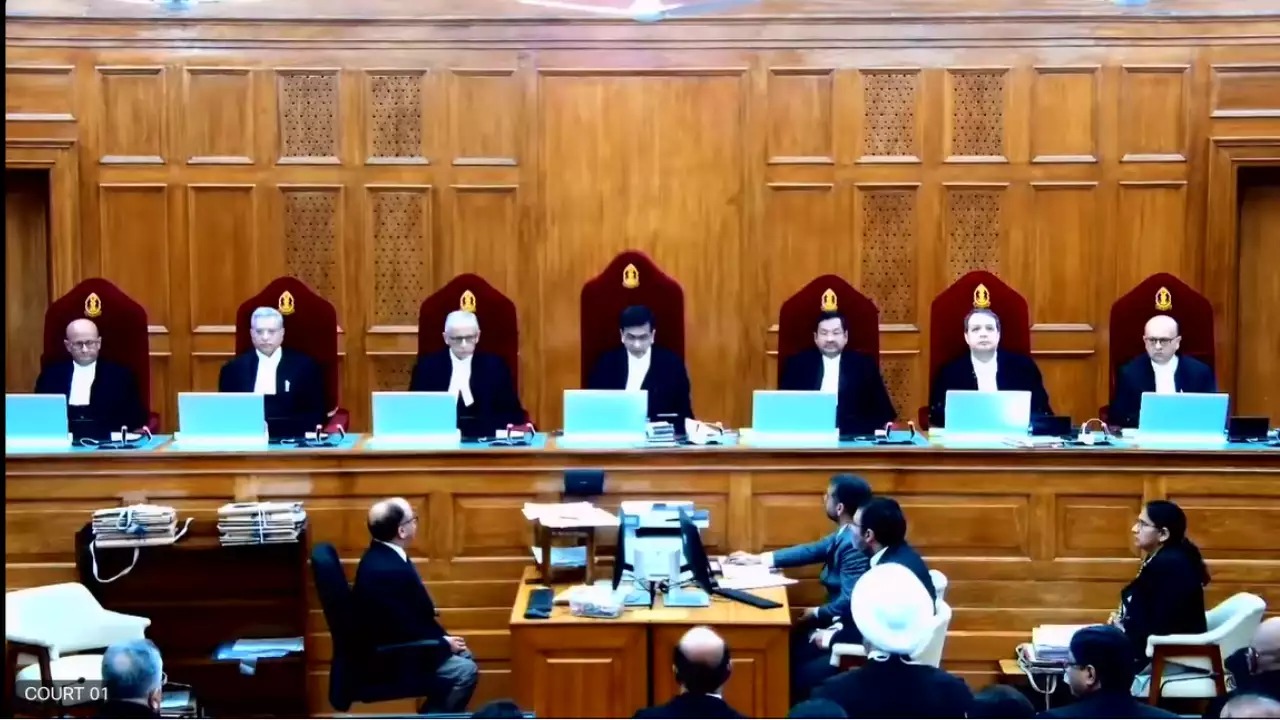On Monday, the Supreme Court reversed a 1998 ruling that protected lawmakers from punishment for receiving payments to speak or vote in state legislatures.
A seven-judge bench led by Chief Justice of India D Y Chandrachud declared, “The judgment of the majority in Narasimha Rao (case), which grants immunity to legislators has a grave danger and thus overruled.”
Article 105(2) of the Constitution, which deals with the powers and privileges of the Houses of Parliament, and Article 194(2) of the Constitution, which states that no parliamentarian can be liable to “any proceedings in any court in respect of anything said or any vote given by him in the Legislature,” provide legislators with immunity from criminal prosecution for bribery in matters related to their speech and votes in Parliament and Legislative Assemblies, a five-judge bench ruled in a 3:2 majority decision.
Led to the JMM bribery case: Under the shadow of the death of former Prime Minister Rajiv Gandhi, the 1991 Lok Sabha elections took place. The Congress barely survived the 1991 elections after losing power in 1989 due to the Bofors fraud. With 232 of the 487 seats it ran for, it emerged as the single-largest party but was well short of the majority threshold of 272. Then, as a surprise appointment to the position of prime minister, P V Narasimha Rao led a minority administration. During Rao’s term, there were several challenges, the most significant of which was the economic crisis that endangered the nation’s macroeconomic stability. Rao was in charge when the 1991 economic liberalization measures were implemented. However, due of the Ramjanmabhoomi agitation, which resulted in the Babri Masjid’s demolition on December 6, 1992, the nation was also undergoing fast political change.
These two significant concerns later served as the cornerstone of a vote of no-confidence in the Rao administration. Ajoy Mukhopadhyay of the CPI(M) made the motion’s introduction on July 26, 1993, during the Monsoon Session. At that time, there were 528 members of the Lok Sabha and 251 members of the Congress. This indicated that 13 members were needed for the party to have a simple majority. Three days were spent debating.The CBI probe, which said that the JMM leaders “accepted illegal gratification to vote against the Motion and, because of their votes and some other votes, the Government led by A-1 (Rao) survived,” was cited by the Supreme Court in its ruling at the time.
“No member (of Parliament) is answerable in a court of law or any similar tribunal for what he has said in Parliament,” Justice S P Bharucha ruled in the ruling. Once more, this is an acknowledgment that a member of Parliament must have the ability to speak in Parliament without fear of retaliation. Any method of casting a vote—voice, gesture, or computer assisted—is considered an extension of speech or a stand-in for spoken word and is therefore protected.
Bharucha went on, “We are fully aware of the gravity of the offense that the purported bribe taker is alleged to have committed. If verified, they exchanged a grave trust given to them by those they represented. They made it possible for a government to exist because of the money they got. Nevertheless, the protection that the Constitution clearly grants them is theirs. Our outrage shouldn’t drive us to interpret the Constitution narrowly, undermining the right to meaningful discussion and participation in Parliament.

